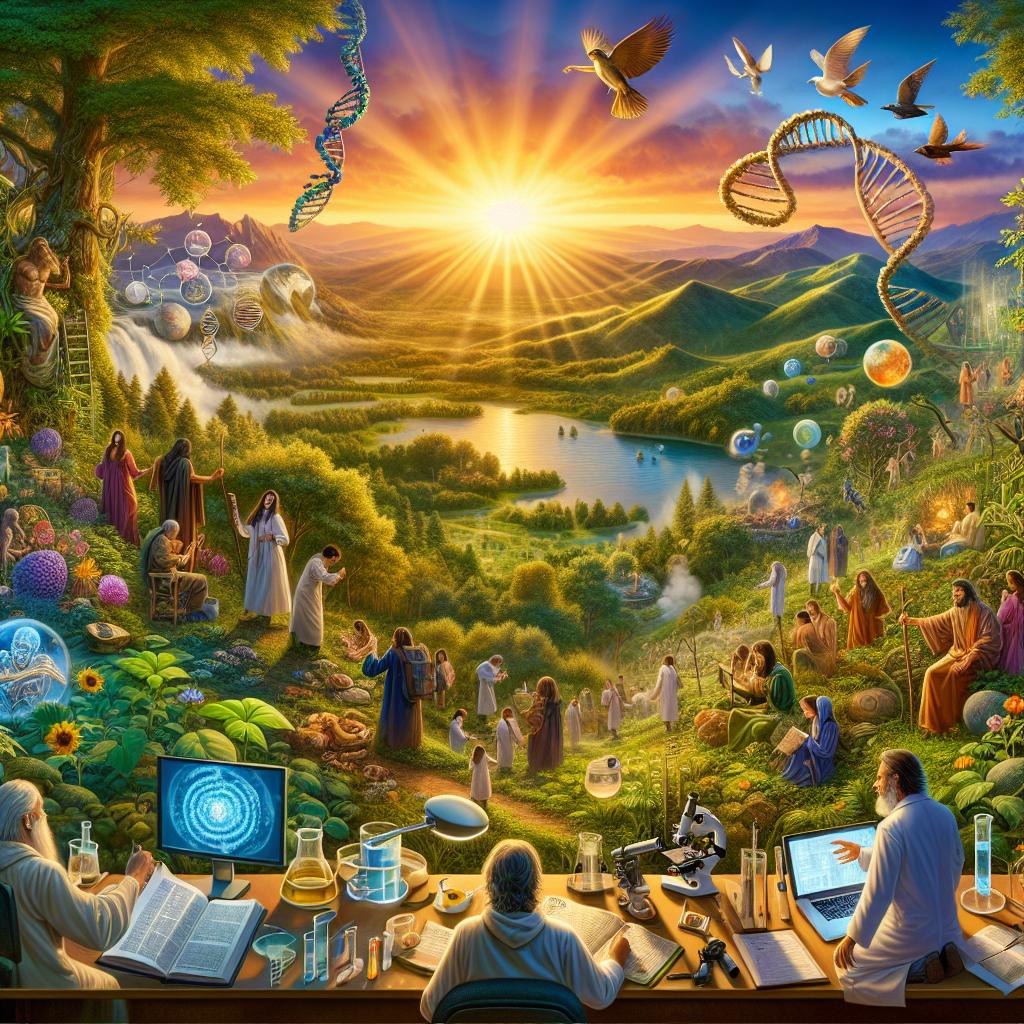
Unveiling the Biblical Foundation of Modern Science: A Christian Perspective
Published: 21 April 2024
Biblical Roots of Modern Science
The relationship between biblical belief and science is often portrayed as one of conflict, but historians of science have pointed out that modern science actually emerged within a Christian worldview. This worldview was based on the assumption that the universe was created by a rational Creator. The idea of an orderly universe only makes sense if it was made by an orderly Creator.
The Bible also provides a unique permission to investigate creation. Unlike other belief systems that see creation as divine, the Bible teaches that God is sovereign and free to create as He pleases. Therefore, where the Bible is silent, the only way to understand how His creation works is through experimentation.
During the Middle Ages, often referred to as the "Dark Ages," there were significant scientific advancements. These advances were rooted in the logical thought patterns of the medieval Scholastic philosophers and the inventiveness developed in monasteries. This period saw the development of water and wind power, spectacles, magnificent architecture, the blast furnace, and the stirrup.
One important advancement during this time was made by John Buridan, a 14th-century logician who developed the concept of impetus, which is similar to the modern concept of momentum. Buridan proposed that a moving object would continue to move as long as its impetus remained stronger than resistance. This idea foreshadowed Isaac Newton's First Law of Motion.
Contrary to popular belief, the Catholic Church actively supported science during this period. It never banned human dissection or the concept of zero, and it did not burn anyone at the stake for scientific ideas. In fact, recent research has shown that the Middle Ages were a time of significant advances in science, technology, and culture.
However, it was during the Reformation that specific biblical authority was recovered, leading to a significant jump in scientific development. The Reformation emphasized a plain or historical-grammatical understanding of the Bible, which aligned with the understanding of the New Testament authors and early Church Fathers. This had a profound impact on the development of modern science.
The literal interpretation of the Bible played a positive role in the development of science. The Bible provided motivating images for pursuing the natural sciences, as it was believed that Adam possessed a perfect knowledge of all sciences before the Fall. Scientists such as Francis Bacon saw their work as part of a redemptive enterprise to regain the scientific knowledge of the first man.
Belief in the Fall of Adam and its effect on human knowledge also inspired scientists to study nature in the same way they studied the Bible. This shift to studying nature directly in an inductive and empirical way was key to the birth of modern science. The experimental approach in science was deeply influenced by Augustinian views on the limitations of human knowledge after the Fall.
In summary, modern science emerged within a Christian worldview that recognized a rational Creator and allowed for investigation into creation. The Middle Ages, often misrepresented as a period of intellectual darkness, saw significant scientific advancements rooted in Christian thought. The Reformation further propelled scientific development by emphasizing biblical authority and inspiring scientists to regain the knowledge that was believed to be lost through Adam's Fall. Belief in a literal first man Adam and his Fall played a crucial role in inspiring scientific exploration as a means to rediscover lost knowledge. It is important to recognize and nurture the biblical roots of modern science to continue reaping its fruits.
Why This Matters: Understanding the biblical roots of modern science allows us to appreciate the compatibility between faith and scientific exploration. It challenges the notion that Christianity is opposed to scientific progress and encourages Christians to engage with scientific discoveries from a biblical perspective.
Think About It: How does recognizing the biblical roots of modern science impact your view of the relationship between faith and science? How can you incorporate this understanding into your own engagement with scientific discoveries?
